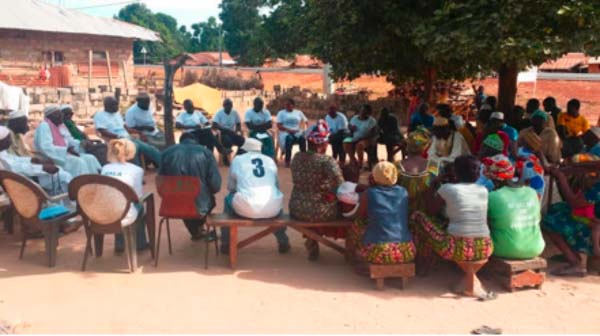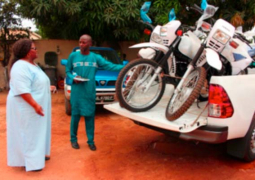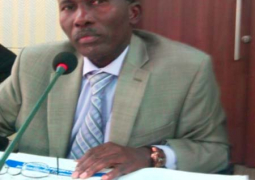
She was speaking during a series of Mobile Legal Aid Clinic sessions that were conducted in the West Coast Region by NALA in collaboration with the Gambia Bar Association and the Department of Social Welfare.
The Mobile Legal Aid Clinic sessions funded by UNICEF were conducted in communities in Foni Jarrol, Bondali, Kansala, Berefet, Kombo East, Kombo Central, Kombo South and Kombo North districts.
NALA, she said, was established in 2010under the Legal Aid Act 2008 to provide legal aid to all people of The Gambia with focus on cases of capital offence and criminal cases punishable with life imprisonment, such as murder, rape, robbery with violence, treason, drug-trafficking and all cases involving children.
Jane Abudho added that the Mobile Legal Aid Clinic project was established in April 2014 with the support of UNDP under its Access to Justice Programme, to decentralize legal aid services to the grassroots in order to reach people who could not have access to a lawyer due to their financial status and the geographical location of legal practitioners, among others.
According to her, the project responds to legal issues affecting people in the grassroots so as to increase awareness of rights, legal procedures and the justice system.
She highlighted NALA’s resolve to extend its services to other regions especially in the provinces, adding that most issues confronting rural people such as land, child custody and maintenance, inheritance, divorce, teenage pregnancy cases, sexual and domestic violence require legal advice for intervention.
Gbuji Judith Ngozi, a senior legal officer with NALA, said the agency provides free legal representation to most cases through a court order, and also conducts prison and police station visits to identify people in need of legal representation.
She commended UNDP and UNICEF for funding the project, adding that their support would go a long way in making access to justice a reality to the people of The Gambia.
Read Other Articles In Article (Archive)



